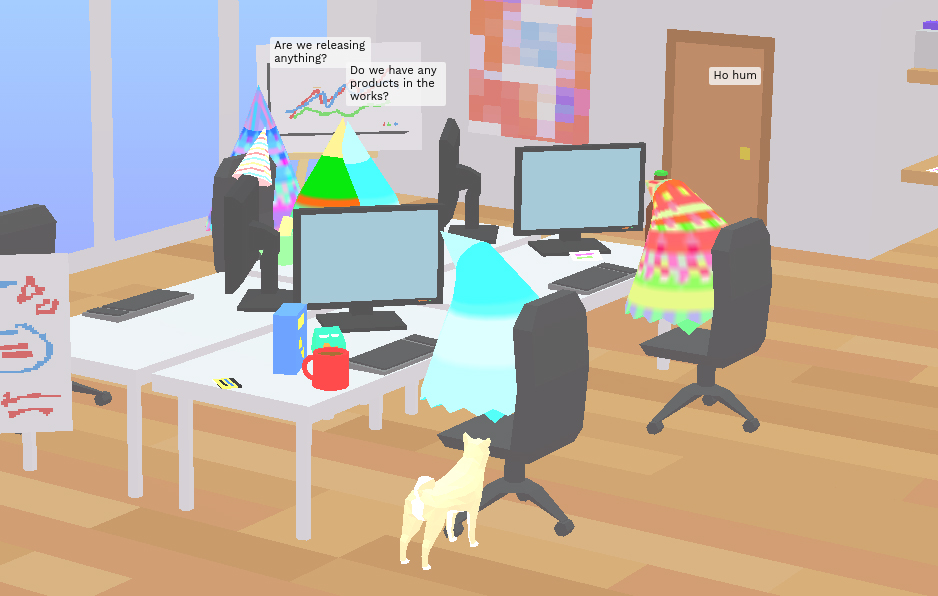 An audio version of this essay is available to subscribers, provided by curio.io.
An audio version of this essay is available to subscribers, provided by curio.io.
The Founder can be downloaded and accessed at http://thefounder.biz
If Silicon Valley could dream, it would dream in video games. Those unconscious desires, the real libidinal images of the innovating classes—and not the avowed “dreams” of giving girls good STEM educations or blockchain-driven voting platforms—would probably look a lot like Francis Tseng’s dystopian business simulator The Founder.
“Disrupt the world,” instructs the game’s loading page. And if you manipulate your employees right, you can. Grow from a tiny start-up in a cozy Cambridge apartment in 2001 to a global megacorp producing hardware and software for the entertainment, military, biotech, and finance industries.
The Founder is a management sim à la Sim City, and play involves running your office, managing employees, massaging your corporate reputation, and keeping up hectic product schedules. The main activity of the game is to make as many products as possible while increasing employee productivity, and, of course, cutting costs.
With every hire, you play an interview minigame. But rather than trying to determine your new employee’s qualifications, you use their social media profile to anticipate what excites them about working for you—if they’re concerned with social justice, you emphasize how your product will change the world for the better, for example—and the more you butter them up, the lower the salary you can offer them. But you can also drive down wages by filling the office with perks—microbrews, artisanal catering, coffee—that require only a one-time investment.
To make a product, of course, you have to innovate—and what is innovation if not combining old technologies through an app and calling it new? In The Founder, every product is a combination of two product categories, and as you grow, and add new categories, verticals, and industry fields to your repertoire, so too does the range of your “innovation.” As you spread offices around the globe, buy out the media and the immediate competition, you will eventually begin to truly disrupt industry, by automating all of your employees and customers. When you win the game, it will be by developing a founder AI, capable of managing the global hegemon you’ve developed. It will promptly fire you.
Disruption and innovation are all about developing shiny new techniques for the same old capitalist practices. “Before the Internet, it would be really difficult to find someone, sit them down for ten minutes and get them to work for you, and then fire them after those ten minutes. But with technology, you can actually find them, pay them the tiny amount of money, and then get rid of them when you don’t need them anymore,” CrowdFlower CEO Lukas Biewald told the Nation in 2014, about the new platform economies. Whether we arrive at a utopian world without work or a dystopia full of only the unemployed and their overseers will depend on whether we get there through Silicon Valley disruption or revolt from below.
